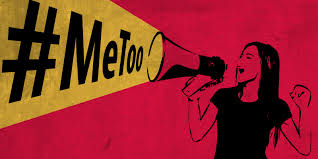
We’ve been hearing a lot about sexual harassment in the news lately. Powerful people, mainly white men, have been forcibly removed from their positions. The community at large is engaged in a conversation about how often harassment actually takes place, whether the level of harassment should result in being fired or removed from power and what this says about women’s place in our community overall.
We’ve been here before. The passage of Title VII in 1964 prohibited sex discrimination in the workplace in name. However, as the cases of Anita Hill and Monica Lewinsky showed, stereotypes of women who report harassment prevent many women from taking legal action. Less than half of those who file complaints are found to have a case of merit and only 2.6% are successfully reconciled (https://www.eeoc.gov/eeoc/statistics/enforcement/sexual_harassment_new.cfm).
Sexual harassment is about power and privilege. When people question why individuals haven’t come forward previously, they fail to recognize that fear of retaliation, retribution or being labeled as a liar or troublemaker are all legitimate concerns. For women, the choice between coming forward with allegations and the possible loss of a paycheck or progressing in their career could make all the difference. This issue highlights the equity gap that exists in the United States between men and women, and even more so for women of color.
Consider the following statistics on gender equity:
In Rhode Island, White women make .88 to men’s $1; African-American women make .77 and Hispanic women make less than .50. If nothing is done, the wage gap won’t close on its own until at least 2058.Because there is a wage gap, there is also a wealth gap. Women have 177% more debt than men on average, often experiencing every type of debt available (housing, education, automobile, etc…)40% of women are the single breadwinners for their families, yet the average salary for a Rhode Island woman is $30,000
What can be done? It’s clear that sexual harassment allegations today are being taken more seriously. Perhaps this is the tipping point, with more women coming forward to share their stories. If you feel you are being sexually harassed, be sure to document everything, including the situation itself and your experience in reporting it. Also be sure to document your productivity during the time of the incident and afterwards. If your workplace has a sexual harassment policy in place, follow it. Report the issue to human resources or the person responsible for handling complaints. Confide in your support network, whether you decide to pursue an official complaint or not.
The mission of the Women’s Fund of Rhode Island is to invest in women and girls through research, advocacy and strategic partnerships designed to eliminate gender inequity through systemic change. Our work includes advocating for fair and equitable pay. To learn more about our research and policy priorities, please visit www.wfri.org.

